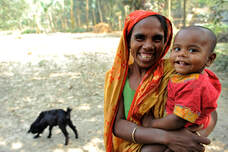Saad B. Omer

Dr. Saad B. Omer is the founding Dean of Peter O'Donnell Jr. School of Public Health
at UT Southwestern in Dallas. He was previously the inaugural Director of Yale Institute for Global Health. Dr. Omer has conducted studies in the United States, Guatemala, Kenya, Uganda, Ethiopia, India, Pakistan, Bangladesh, South Africa, and Australia. Dr Omer’s research portfolio includes epidemiology of respiratory viruses such as influenza, RSV, and - more recently - SARS-Cov-2 (COVID-19); clinical trials to estimate efficacy of maternal and/or infant influenza, pertussis, polio, measles and pneumococcal vaccines; and trials to evaluate drug regimens to reduce mother-to-child transmission of HIV. Moreover, he has conducted several studies on interventions to increase immunization coverage and acceptance. His work has also included public health preparedness strategies to effectively respond to large emerging and re-emerging infectious disease outbreaks. Dr Omer’s work has been cited in global and country-specific policy recommendations and has informed clinical practice and health legislation in several countries.
Dr. Omer has published widely in peer reviewed journals including the New England Journal of Medicine, JAMA, Lancet, Cell, Science, and Nature. Moreover, he has written op-eds for publications such as the New York Times, Politico, and the Washington Post.
Dr Omer was elected to the National Academy of Medicine and has received multiple awards – including the Maurice Hilleman Award by the National Foundation of Infectious Diseases for his work on the impact of maternal influenza immunization on respiratory illness in infants younger than 6 months- for whom there is no vaccine. He has served on the boards of trustees of Gavi the Vaccine Alliance and Sabin Vaccine Institute and advisory panels including the World Health Organization Strategic Advisory Group of Experts (SAGE) on Vaccines, U.S. National Vaccine Advisory Committee, the Presidential Advisory Council on Combating Antibiotic-Resistant Bacteria-Vaccine Innovation Working Group, and multiple National Academy of Medicine panels. Moreover, he served as an academic affiliate of the Office of Evaluation Sciences –formerly known as the White House Social and Behavioral Sciences Team.
at UT Southwestern in Dallas. He was previously the inaugural Director of Yale Institute for Global Health. Dr. Omer has conducted studies in the United States, Guatemala, Kenya, Uganda, Ethiopia, India, Pakistan, Bangladesh, South Africa, and Australia. Dr Omer’s research portfolio includes epidemiology of respiratory viruses such as influenza, RSV, and - more recently - SARS-Cov-2 (COVID-19); clinical trials to estimate efficacy of maternal and/or infant influenza, pertussis, polio, measles and pneumococcal vaccines; and trials to evaluate drug regimens to reduce mother-to-child transmission of HIV. Moreover, he has conducted several studies on interventions to increase immunization coverage and acceptance. His work has also included public health preparedness strategies to effectively respond to large emerging and re-emerging infectious disease outbreaks. Dr Omer’s work has been cited in global and country-specific policy recommendations and has informed clinical practice and health legislation in several countries.
Dr. Omer has published widely in peer reviewed journals including the New England Journal of Medicine, JAMA, Lancet, Cell, Science, and Nature. Moreover, he has written op-eds for publications such as the New York Times, Politico, and the Washington Post.
Dr Omer was elected to the National Academy of Medicine and has received multiple awards – including the Maurice Hilleman Award by the National Foundation of Infectious Diseases for his work on the impact of maternal influenza immunization on respiratory illness in infants younger than 6 months- for whom there is no vaccine. He has served on the boards of trustees of Gavi the Vaccine Alliance and Sabin Vaccine Institute and advisory panels including the World Health Organization Strategic Advisory Group of Experts (SAGE) on Vaccines, U.S. National Vaccine Advisory Committee, the Presidential Advisory Council on Combating Antibiotic-Resistant Bacteria-Vaccine Innovation Working Group, and multiple National Academy of Medicine panels. Moreover, he served as an academic affiliate of the Office of Evaluation Sciences –formerly known as the White House Social and Behavioral Sciences Team.
Honors & AwardsNational Academy of Medicine Member- 2022. One of three academies that make up the National Academies of Sciences, Engineering, and Medicine (the National Academies) in the United States. According to NAM, its “membership reflects the height of professional achievement and commitment to service.”
Connecticut Academy of Science and Engineering (CASE) Member- 2022. CASE members are elected based on recognition of their scientific and engineering distinction achieved through significant contributions in theory or applications. M.A. Privatum - 2019: An honorary master’s degree awarded by Yale University. Christiaan Eijkman Invited Lecture - 2018: This invited lecture at University Medical Center Utrecht is named after the Dutch Nobel Prize winner who discovered Vitamin B1. William H. Foege Chair in Global Health – 2016-2019: This endowed chair was established in honor of Dr. William (Bill) Foege with a gift from the Bill and Melinda Gates Foundation. Dr. Foege is a former CDC Director and is credited for devising the global strategy that led to smallpox eradication. Millipub Club Award – 2015 & 2017: Recognizes individuals who have published one or more papers that have each garnered more than 1000 citations. Awarded for 5 papers. Bruce Squires Award -2014: Presented annually to the authors of a research article in the Canadian Medical Association Journal that "promotes high standards of reporting and evidence-based medicine." Fellow, Infectious Diseases Society of America -2014: Recognizes individuals who have achieved professional excellence and provided significant service to the profession. Pediatric Infectious Diseases Society Young Investigator Award -2013: Presented by the Pediatric Infectious Diseases Society for "independent & productive research that represents outstanding contributions in pediatric infectious diseases." Maurice R. Hilleman Early-stage Career Investigator Award -2009: Presented by the National Foundation for Infectious Diseases. The award recognizes individuals in the field of vaccinology based on a specific research contribution and their overall career trajectory. Infectious Diseases Society of America Program Choice Award -2009: Presented by the Infectious Diseases Society based on the recommendation of the IDSA program choice committee Global Health Institute, Faculty Distinction Fund Award -2008: Presented by Emory University’s Global Health Institute |
Education & TrainingPhD - Global Disease Epidemiology and Control Program - Department of International Health; Johns Hopkins University, Baltimore, Maryland
MPH - Johns Hopkins University, Baltimore, Maryland MBBS -The Aga Khan University Medical College, Karachi, Pakistan Panels & Working Groups (Selected)Board of Trustees Gavi -the Vaccine Alliance. 2023-Present
World Health Organization, Strategic Advisory Group of Experts (SAGE) on Vaccines. 2023-Present. National Academy of Medicine/NASEM, Committee on Equitable Allocation of Vaccine for the Novel Coronavirus. 2020-Present. Board of Trustees Sabin Vaccine Institute. 2019-Present World Health Org. Global Advisory Committee on Vaccine Safety. 2019-Present Vaccination Acceptance Research Network (VARN) Steering Committee. 2018-2020 World Health Org. Healthcare Worker Influenza Vaccine Independent Expert Advisory Group. 2018-2019 World Health Org. (WHO-EMRO) Regional Technical Advisory Group for Immunization in the Eastern Mediterranean. 2017-2019 Presidential Advisory Council on Combating Antibiotic-Resistant Bacteria - Vaccine Innovation Working Group. 2016-2017 Pan American Health Organization, Maternal Immunization Working Group (PAHO MIG). 2015 -present National Vaccine Advisory Committee (NVAC). Member 2014-2018 Public Health Committee, Infectious Diseases Society of America. 2014-2017 |
